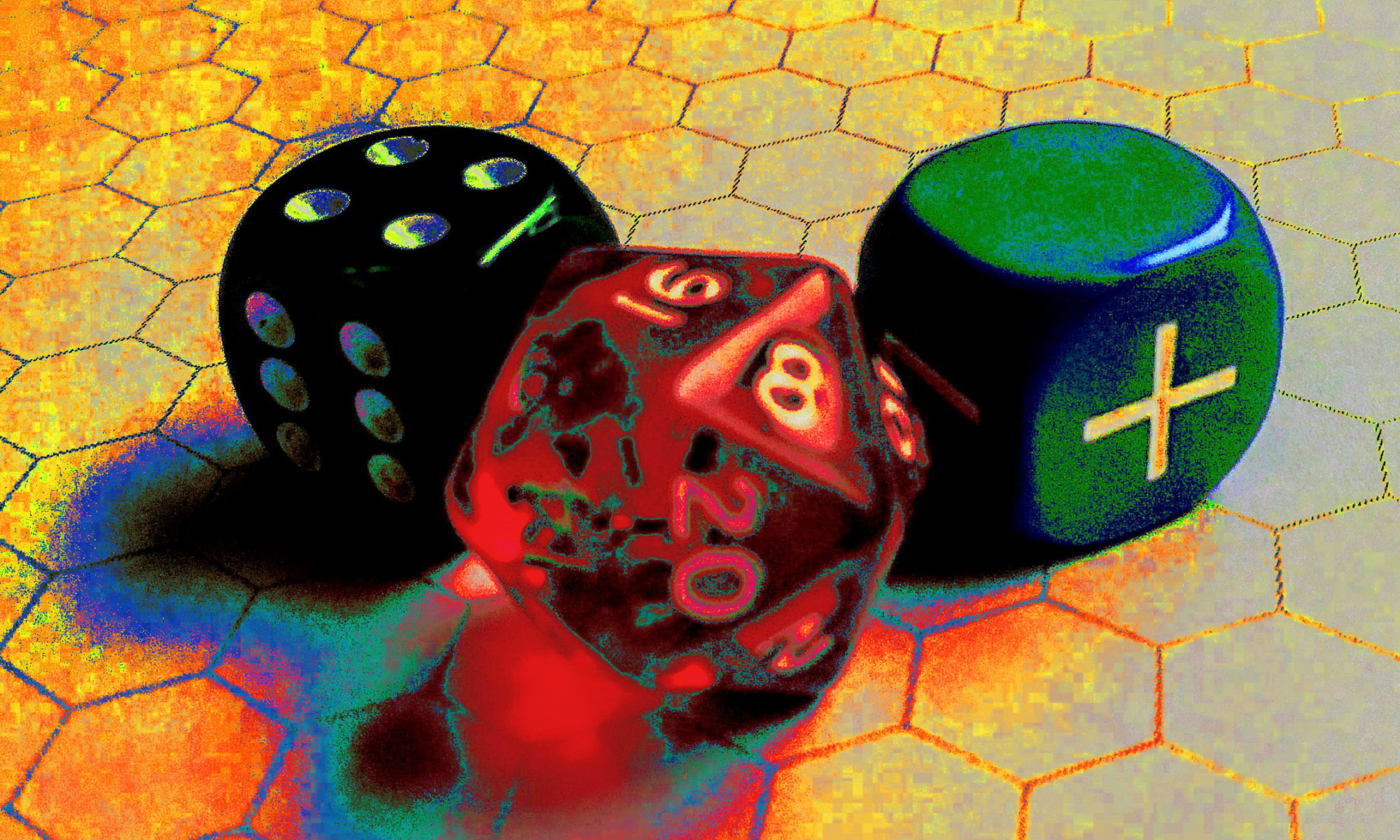Yesterday on Mastodon @BindRPG asked about popular libre settings for rpg gaming. Interesting question I thought, some chatter went back and forth, and … man, this really got me thinking.
I mean, there are a whole bunch of gaming systems realeased under some sort of libre license. Prominently Fate core and Dungeon World come to mind, which both are available unter Creative Commons Attribution 3.0 for example. But there are others under some kind of creative commons license like Gumshoe, Eclipse Phase, Freeform Universal (disclaimer no 1: please check the respective web sites for exact licensing terms). Apart from that, there are hundreds of games released under the Open Gaming License, which might be considered less libre then creative commons, and hardly anyone of those is open source, too (Basic Fantasy RPG being one exception). And hey, since yesterday I know of BindRPG, which is even released under the GNU General Public License.
But a libre setting? When I think about settings, various creations come to mind, most of which are big companies interelectual property – most probably with some big time fierce lawyers just waiting for you to stray into their territory.
But do we actually need a libre setting?
Well, not if you just want to play in, say Hogwarts, or on the Planet of Tatooine. In those cases you’ll likely have payed for a commercial setting book anyway, which of course is meant to be used just for that. And if you home brewed your way into that other setting, the lawyers simply won’t find out. And even if they would, such use would always be covered by the concept of fair use.
At your gaming table, you could always take the Infinite Worlds mega-setting from GURPS, and include just about any other setting there is, but again, Infinite Worlds is intellectual property of Steve Jackson Games.
And don’t even think about doing anything commercially for some others intellectual property setting. Don’t do it – unless you really want to, know what you do, and have put some money aside to pay the lawyer.
So in fact, having a good libre setting would allow folks to not only play in a cool setting, but anyone could publish for this setting, and thereby add to it, for everyones gaming fun and pleasure.
And opposed to commercial licenses, open source and a libre license substantially facilitates crowd sourcing and collaboration on a common shared setting.
So, do we need a libre setting? I think yes, it would be terrific!
So, but what is a setting, really?
Role playing settings can be as small as a map of a village, some hills and a cave or dungeon just behind those hills. But a setting can also be huge, spanning one or even multiple planets, multiple star systems, and rather often than not, multiple planes of existence, epochs far in the past and future, accessible by some means of time travel.
So, on the small scale, a setting would need definitions of:
- local geography
- climate and wheather
- local fauna and flora
- local culture
- spiritual entities and religious beliefs
- technology, trade goods and commercial system
- professions (which might lead to character classes)
- political system and circumstances
- presence or absence of magic in the broadest sense
- notable Non-Player Characters (NPCs), who in some way represent all of the above.
On the large scale, a setting would need a common idea of the cosmology and the universe, and rules to join multiple small scale settings in different locations and epochs within the large scale setting.
How to go about it?
I think for a crowd sourced, collaborative, libre setting we would need basically a set of common rules. Rules to define those items mentioned above for the small scale setting, and rules to find out where to put small scale subsettings within the large scale – a common reference system, location wise, and time wise.
I believe the way to define all these things should be system neutral, since being specific for any one particular gaming system would run counter to the idea of a common shared setting. So any definition of setting items should use normal language, real world units, and reference to items and things of everyday life for comparison. For example some humanoid tribe could be “twice as strong” as normal humans, and a particular kind of dragon could be “as large as a blue whale”, while some gnomish folks could be “as small as cats”.
The large scale would probably need a common time line, and a common spacial map – I’m thinking of something like the subsector maps of the Traveller RPG. Subsector maps could have multiple layers, to represent multiple dimensions or planes.
I also like the idea, that the expansion of a common cosmos, is actually an in game thing. So in order to find a new place, player characters have to go exploring, and to expand into new planes or alternative dimensions, mighty rituals have to be performed, or new science has to be discovered – in game. So the common mega-setting would need rules for this, too.
I’m envisioning a core book, which would lay out the common time line, a common multidimensional reference system, and all of those common rules on how to define a subsetting. A basic core “Elves, Dwarves and Orcs”-Fantasy subsetting would be nice, too. As an example, and a common, canonical default place to start playing in. Individual subsettings could be added as zine-format gazeteers.
So, will it happen? Anyone else interested in this?
